Several memorable dates in March are connected with a couple of talented people, Abaza cultural and art figures of the spouses Gozhevs. An essay of the WAC web information portal is devoted to their creative work, both personal and joint, and their indivisible life fate.
Georgi Chekalov
Spouses Gozhevs seemed very different from the outside. He is restless, striving to be in time everywhere, to participate in everything. She is quiet, calm and homely. However, the fate of Abrek-Zaur and Galina Gozhevs intertwined for many years and wove their love - to each other, to music, to art.
Although they had a lot in common initially. Both of them were born in March: Galina on the 11th, three days after the women's holiday, and femininity became one of her main qualities, Abrek-Zaur - on the 28th, immediately after the International Theater Day, and his whole life was given to the stage. In addition, they played the wedding on March 28, 1963 - it became a kind and the most expensive gift to the groom for the 25th anniversary.
“It’s so good that you came!”
Galya Khachukova did not have time to really figure out what had happened, and had already acquired a new surname. After all, she had seen her betrothed before the wedding only three times.
“Once, Dzhalduz Tkhokhova, with whom we communicated closely, asked me to go to her - they say she needs my help,” - Galina Beslanovna recalls her first acquaintance with Abrek-Zaur Patovich. – “When I came to her, I saw a person who was fumbling barefoot in her garden. Something told me that it was because of him that Dzhalduz called me.”
The new person was Abrek-Zaur Gozhev and he turned out to be an interesting, talkative young man from Apsua (Ashkhara village in Karachay-Cherkessia - ed.). It turned out that he had just returned from Leningrad, where he studied for five years at the Leningrad State Institute of Theater, Music and Cinematography (LGITMiK) as part of the first Karachay-Circassian studio (in 1957 a large group from Karachay-Cherkessian Autonomous Region - ed.). Abrek-Zaur spoke enthusiastically about studying in the cultural capital of Russia, about the performances that their studio staged, especially about the comedy “Arshin Mal Alan”, their diploma work, where he played the role of the main character Asker.
Galina was also a young specialist then - she graduated from the Circassian Pedagogical School and worked as a teacher in her native Psyzh (Abaza village near the city of Cherkessk - ed.). Once they went to the theater with the whole team of the school for the premiere of the “Ocean” play, which was staged by LGITMiK graduates. Abrek-Zaur approached her in the foyer.
“He said: “It's so good that you came to see the play” - and ran away”, - that’s all Galina Beslanovna can remember about their second meeting.
The third time she saw him at home, when he came with her friends and one of her relatives to woo her.
A few days later she was taken.
“Everything happened so quickly ... He didn’t like to put on hold. He was always running. As if he rushed to live,” Galina Gozheva says with warm sadness about her husband.
Running through life - already together
Apart from the fact that Abrek-Zaur Gozhev played in the theater, he was a very musical man, played the mandolin and sang songs, composed music, although he did not have musical notation. In 1962, his first song “In the Spring” was recorded on radio by Mikael Chikatuev (people's poet of Karachay-Cherkessia - ed.). A year later, the “Abaza Waltz” was played on the radio with the lyrics of the poet Dzhemuladin Laguchev. The song immediately won the hearts of the listeners.
In 1964 the Abkhaz State Drama Theater arrived in Karachay-Cherkessia with a tour. The troupe was accompanied by a large delegation, which included the director of the Sukhum State Music College, Aleksey Chichba. Knowing that the Abaza do not have professional musicians,
Alexey Chantovich decided to invite someone to study at the school he headed. Abrek-Zaur was recommended to him. He, as usual, was ready to go right away. But what about family? By this time, the Gozhevs already had a daughter, Madina, who was only seven months old.
Grandmothers took care of the girl, and the young people went to Abkhazia.
How the teacher became a composer
In Sukhum, young spouses studied and at the same time grew creatively. Abrek-Zaur combined his studies at a music school with work at the Abkhaz State Drama Theater. Galina was a student at once of two faculties - the theory of music and conductor-choral. During these years she composed music to the poems of Shakhimbi Fizikov (“Pilots”, “Your Blue Eyes” and “Waiting for You”) and Dzhemuladin Lagucheva (“The Meeting”). Her thesis work was “Abazashta” with lyrics by Kali Dzhegutanov. This song won the great love of the people and for a long time was considered the unofficial anthem of the Abaza people - and to this day, it remains in this capacity.
So yesterday's young teacher of the first Abaza women became a professional composer.
Despite the success of the song “Abazashta”, in collaboration with Kali Dzhegutanov, Galina Gozheva did not composed any more songs. However, her collaboration with Shakhimbi Fizikov, who wrote the lyrics to eight of her tunes, turned out to be very productive. The undisputed favorite in the “hit parade” of their joint work was the song about the Krasny Vostok village.
Since the late 1980s, Ali (Galis) Ionov has become the most frequent co-author of Galina Gozheva. In one of her interviews from that period, Galina Beslanovna admitted that, having begun working with this poet, she felt a tremendous surge of creative power. Together they wrote a dozen songs, including “Where are you going?” (“Babatsaua?”), which has been among the leaders of Abaza songs for thirty years, and other well-known songs: “You want to cheat with wealth”, “When you were with us, mother,” “The father of my children went to Matsesta,” “Believe me.”
In total, Galina Beslanovna wrote about 40 melodies to songs.
She composed music at leisure, and working time was devoted to teaching the national harmonica.
Contribution to national culture
It would not seem surprising: her closest relatives, grandmother and mother, were also accordionists (Dzhukhil Gonova and Leli Khachukova - famous Abaza harmonica players - ed.). But still - a paradox! It was her husband who convinced her to take the instrument, and before that Galina did not play the harmonica.
“When he (Abrek-Zaur Gozhev - ed.) was appointed director of the cultural and educational school in Cherkessk, he suggested that I take classes in the national harmonica, - says Galina Beslanovna. - I specialized in piano. But he bought five harmonicas “Kazan”, and I had to retrain”.
The first student of Galina Beslanovna in a new capacity was Alibek Kurachinov - now one of the leading harmonists of Karachay-Cherkessia, Honored Artist of the Republic. Then she was a mentor to Madina Muratkova, Diana Apsova and other modern masters of playing the folk instrument.
Galina Gozheva's great merits should include the publication of musical notes of the Abaza folk melodies and the compilation of collections of Abaza songs. First, in 1971 and 1979, two collections were released with the same name “Melodies of Abazashta”, compiled by Gozheva. Later, in 2015, with the financial support of the President of the International Association for the Development of the Abaza-Abkhaz ethnos “Alashara” Mussa Ekzekov and the entrepreneur Nazymbiy Tlisov, the collection “Music warmed my soul” was published. It includes the author's songs of Galina Gozheva herself and musical notes of the melodies of the peoples of Karachay-Cherkessia.
Galina Beslanovna’s contribution to the preservation and development of the national musical culture was marked by the honorary titles “Honored Worker of Culture of the Russian Federation” and “Honored Worker of Culture of Abkhazia”.
Half a century long dream
As for the composer's creativity of her husband, Abrek-Zaur Gozhev enriched the Abaza musical culture with 33 songs. He wrote the lyrics to five songs himself, and he himself performed nine. He also became the author of the first collection of Abaza songs “Fly, my song!” released in 1966.
The theater is another “wing” of Gozhev's creativity, his dream since childhood. However, he did not just want to play - Abrek-Zaur wanted to play precisely on the stage of the Abaza Theater. This cherished dream made him then, in 1957, literally “jump the last train,” because that group of entrants to be sent to Leningrad was already almost fully formed - and yet he was one of them.
He lived with his dream playing in the Karachay-Cherkess Regional Drama Theater, where there was not yet an Abaza troupe. He thought about this dream when in the 90s he gathered Abaza students and in the Karachay-Cherkess College of Culture and Arts created the “Akhsham” drama school (stands for “Abaza Art School of Artistic Youth”, the word means “twilight” - ed.). Abrek-Zaur really hoped that these guys would help dissipate the “twilight” that reigned in this period in the sphere of spirituality and help to shine a new “morning dawn”.
There, in “Akhsham”, the well-known today artists Aminat Napsheva, Zurab Kopsergenov and others began their career.
“For us, young people who decided to find themselves in the work, the studio has become an excellent school,” Zaur Liev, who heads the Abaza television studio of the Karachay-Cherkessia State Television and Radio Broadcasting Company, shares his memories. – “Besides the fact that we acquired some professional skills, well-known creators — poets Mikael Chikatuev, Kerim Mkhtze, Ali Ionov, actress Tamara Kishmahova — came to us and worked with us, and communicating with them gave great food for self-improvement. All these meetings were organized by Abrek-Zaur Patovich.”
Gozhev’s dream came true in June 2001: then-President of Karachay-Cherkessia, Vladimir Semenov, signed a decree on the creation of an Abaza theater, and Gozhev was invited to the theater to be the chief director. Despite the already quite respectable age, he took up the business with youthful enthusiasm, brought the guys from his studio, who together with the artists of the amateur folk theater of the village of Inzhich-Chukun formed the backbone of the new creative team.
“I was surprised at the dedication with which he worked at the rehearsals of our debut play “In the footsteps of the Makhadzhirs”,” said one of the first actors of the State Abaza Drama Theater Amir Bidzhev. – “Abrek-Zaur was well versed in the plot, in the drama, and his knowledge of the music helped to choose the optimal musical background for the play. At the same time, he was always ready to listen to us - non-professionals - and accepted our proposals if they seemed rational to him. A very intelligent man.”
When the first premiere of the theater took place on March 1, 2002 with full house, it seemed there was no one happier in the world than Abrek-Zaur Gozhev. Until his last hour, Abrek-Zaur Patovich lived the life of the theater.
“The angel of death will not find me at home”
On April 20, 2009, employees of all theaters in Karachay-Cherkessia gathered a large delegation to Rostov-on-Don for a meeting of theater workers. Abrek-Zaur Gozhev was included in the delegation.
“He never liked to wear new clothes for events,” recalls the last days of his wife, Galina Gozheva. – “And here, together with my daughter-in-law Asida, I went to the market, bought a new suit. Early in the morning I quickly got ready and went out. I watched him go from the balcony until he was out of sight. A few minutes later I was told that he was gone ...”
Abrek-Zaur Gozhev died in front of the theater when he was going to get into a minibus ...
A few years later, fate prepared Galina Gozheva another terrible blow. March 11, 2016, on the day of her 75th birthday, her and Abrek-Zaur’s son Anzor died.
Having survived two heavy losses, Galina Beslanovna departed from creativity. Now her whole life is devoted to raising grandchildren - the children of Anzor.
“They do not let me get bored and enjoy peace, I am constantly on the move, I have to walk a lot on their business, and in the afternoon I almost never get home,” says Galina Beslanovna. “I tell friends: even if the angel of death comes after me, he will not find me at home.”
And let he not find you for many more years, Galina Beslanovna. Live long!
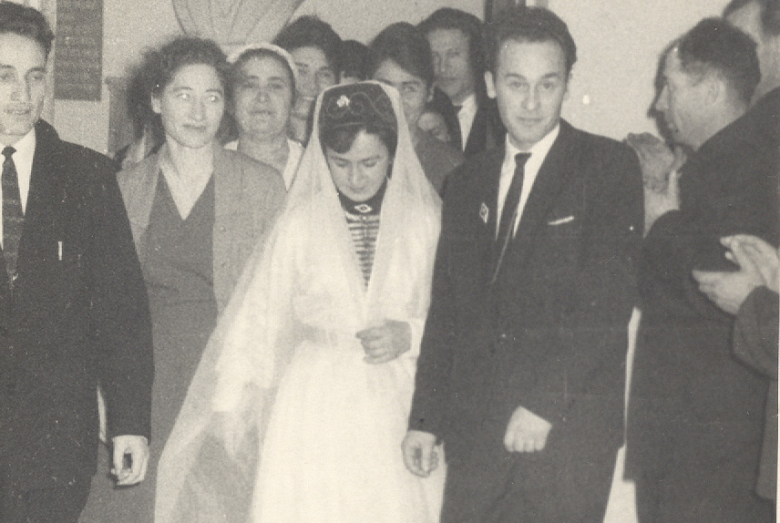
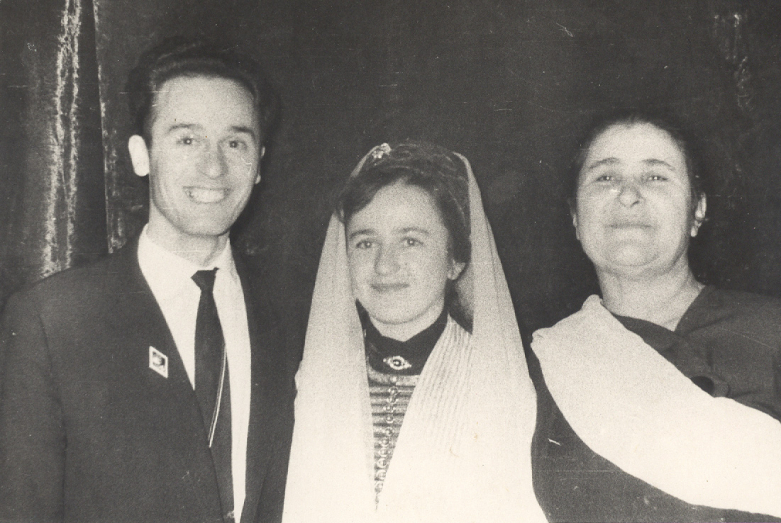
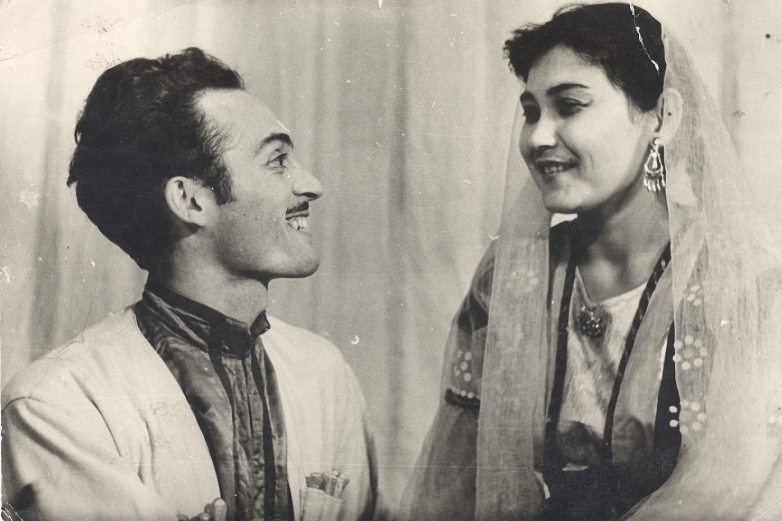
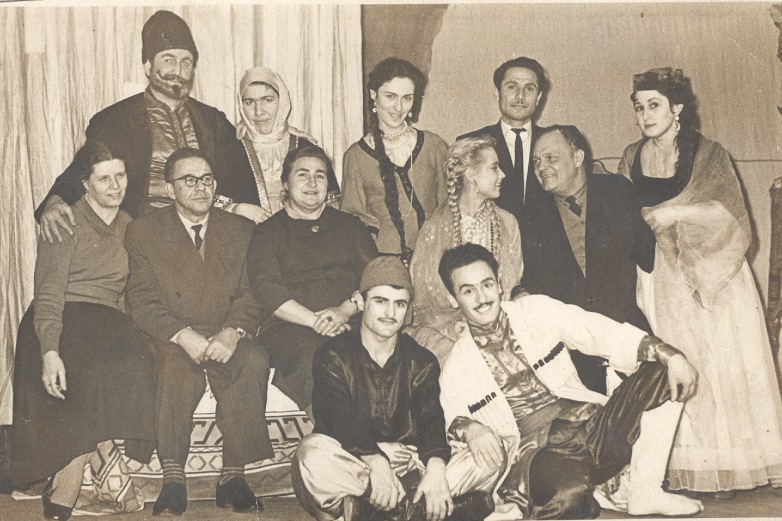
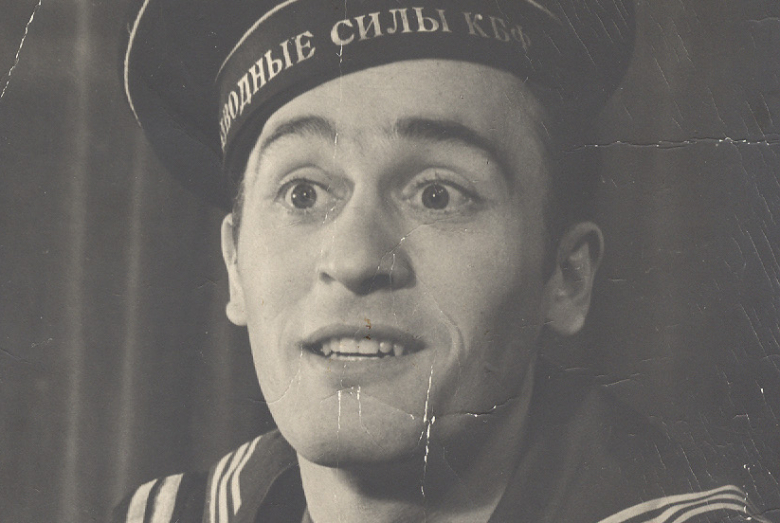
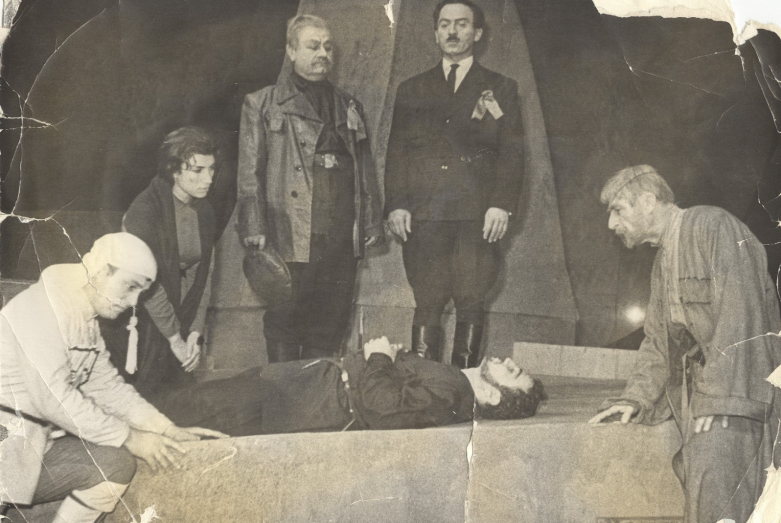
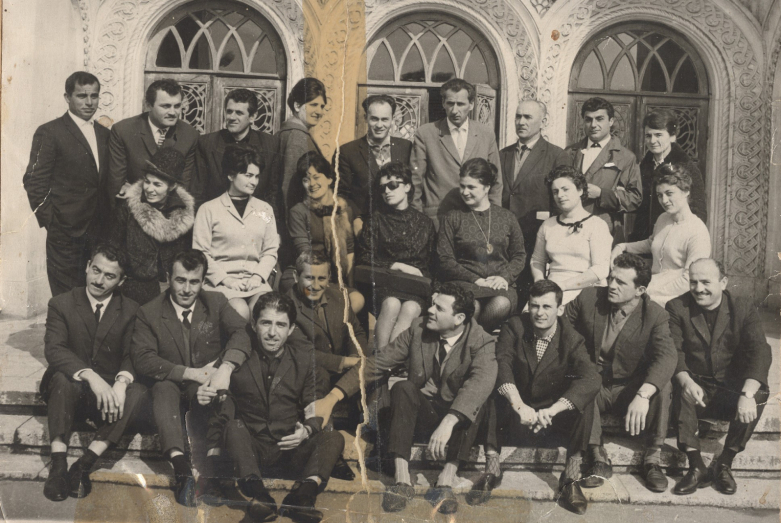
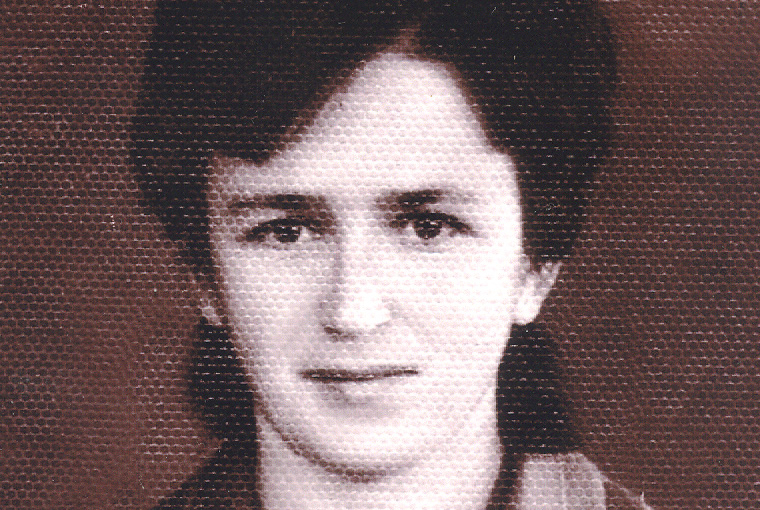
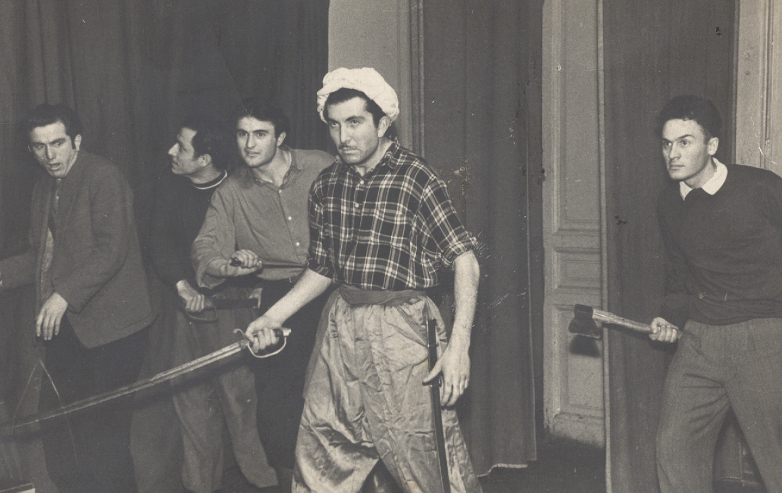
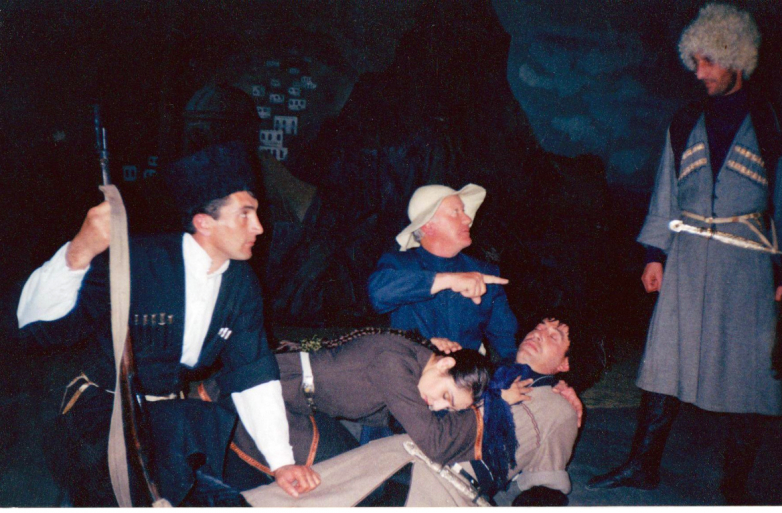
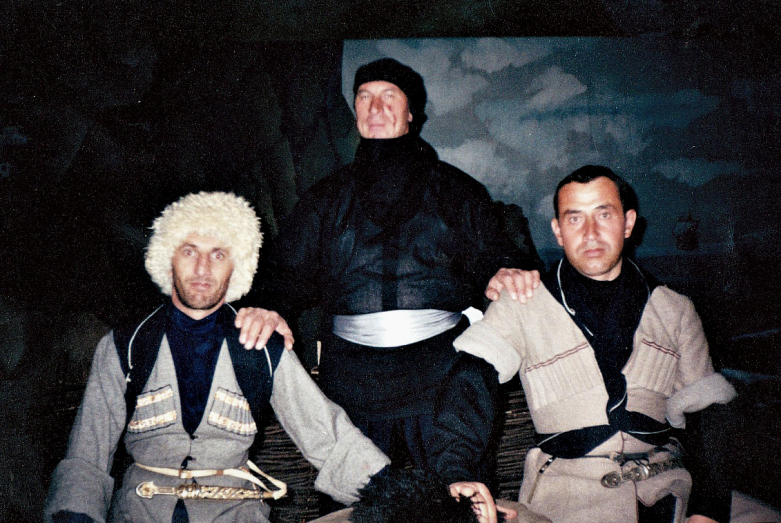
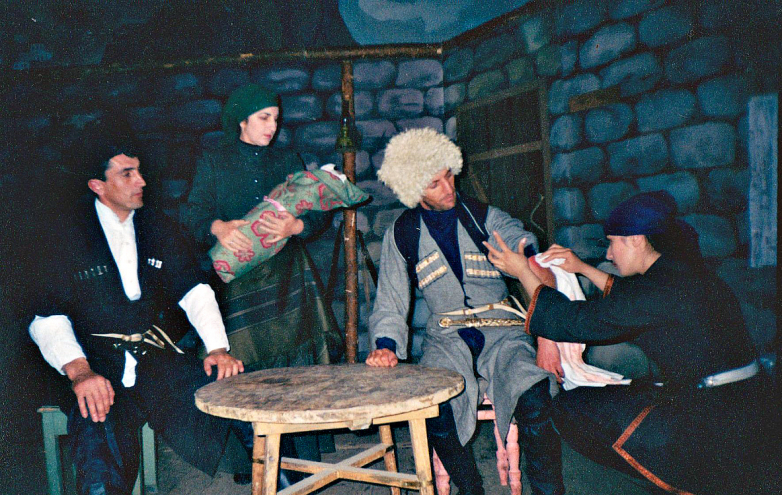
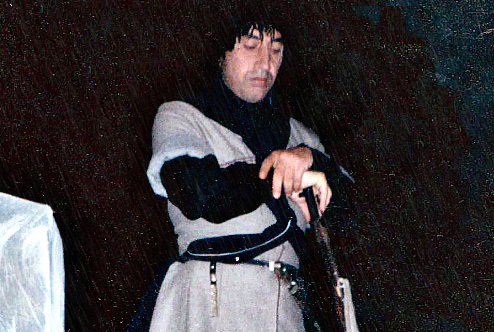
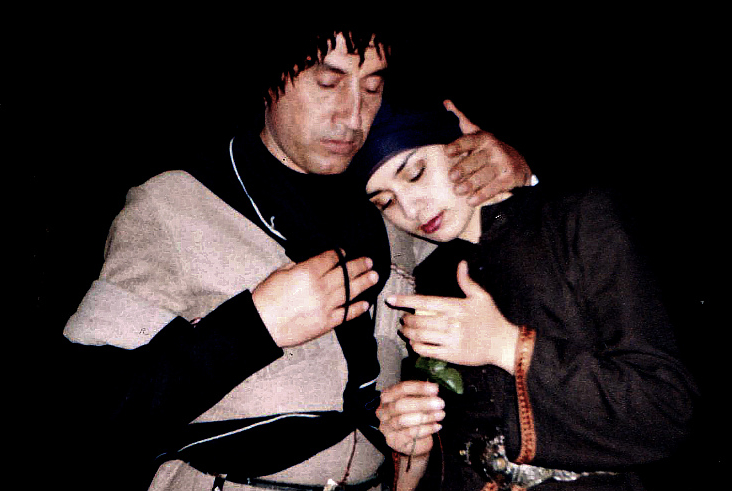
to login or register.